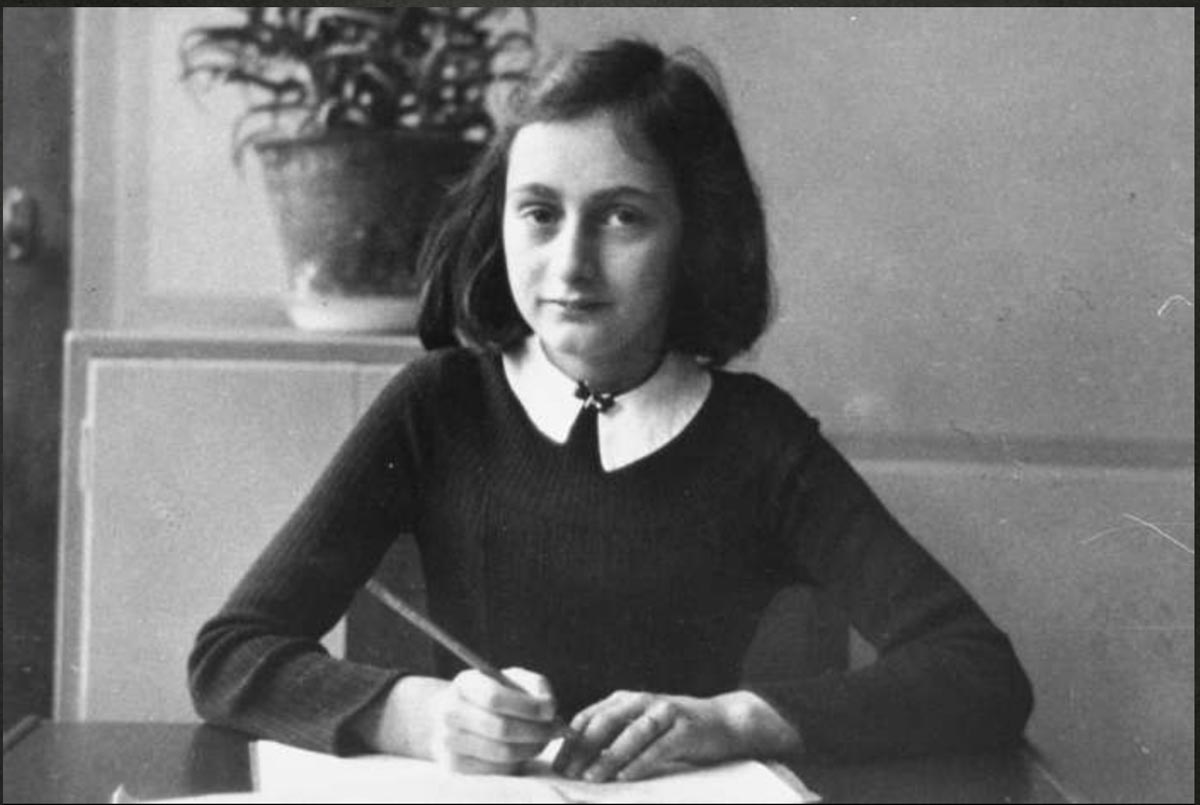Eighty years ago in Amsterdam, a thirteen-year-old Jewish girl with incredible imagination began to write a diary that she called Kitty. Her name was Anne Frank.
The most famous victim of the Holocaust, her smiling picture is the global face of the most horrific crime of the 20th century, especially the 1.5 million children murdered by Hitler’s machinery of extermination and his willing European executioners.
A life cut short, her story of 671 days crammed behind a revolving filing cabinet in a warehouse attic in Nazi-occupied Netherland with her family, another family (the Van Pels) and Fritz Pfeffer, is the most widely read non-fiction book apart from the Bible.
On August 4, 1944, the eight in hiding were discovered, and the Nazis transferred them to different death camps.
A call for action to fight prejudice and a refusal to allow fear to dictate our lives, Anne Frank Diary is an enduring and timeless document that teaches us that while hate kills, love, tolerance, empathy and respect for difference are the best antidote to this disease of the heart.
Translated into more than 80 languages and required reading in schoolsfrom Africa to South America, Anne Frank optimistic yet sober story is a breathtaking force for good, a powerful and eloquent testament to the indomitable spirit of a young woman who, while surrounded by violence, simply wanted to make our planet a better place for all.
Seventy-seven years after she and her sister Margot perished in the Bergen-Belsen concentration camp, Anne Frank is alive and everywhere: in films, TV shows, novels, plays, exhibitions, musicals, YouTube video diaries, and Twitter.
There is even an Anne Frank Declaration signed by world leaders that builds on her vision and expresses solidarity with her ideals.
The abiding hold she still has on our collective consciousness is unbreakable, leading some to say that in times of moral crisis we should ask, “What would Anne Frank do?”
Nelson Mandela once revealed that although banned in South Africa until 1982, prisoners smuggled copies of the diary into the Robben Island Prison.
When Michele Obama visited the Anne Frank House, frequented annually by 1.2 million tourists, she noted in the guestbook, “What a moving and devastating experience! Thank you for making it possible for me to learn even more. With deep gratitude.”
Even Justin Bieber wanted Anne to be a “belieber.”
As the most celebrated female chronicler of the Holocaust, it’s no surprise that she is also a feminist icon, a role model and an inspiration for young girls everywhere.
Her admirers include Nobel laureate Malala Youseafzai who received the Anne Frank Award for Moral Courage and who probably beamed when she read Anne’s thunderous protestation that, “People can tell you to shut up, but they can’t keep you from having an opinion” or her observation that “Women have been, are still are, thought to be inferior to men… It’s easy to say it’s unfair, but that’s not enough for me. I’d really like to know the reason for this great injustice.”
When I first read The Diary of a Young Girl, my heart skipped a beat.
I felt an immediate connection to this idealistic, carefree adolescent, who, in the depths of the greatest inhumanity our world has ever seen, dared to look for the good in the evilest of people.
Her tragedy was not just a statistic.
Still today, I reflect on Frank’s simple challenge for individuals: “How wonderful it is that nobody need wait a single moment before starting to improve the world.”
Though she was never allowed to grow old, I often imagine the elderly Anne.
I guess she would be stunned by the publishing sensation her diary had become, the one she nagged her father to buy for her 13th birthday.
I wonder how angry and shocked she would be at the resurgence of global antisemitism, including in her hometown of Amsterdam?
I wonder whether in 2022, in the aftermath of the genocides in Cambodia, Kosovo, Rwanda and Darfur, she still clings to her confession, made on July 15, 1944, that “people are truly good at heart.”
She would probably tell us, “Hear my words, the same ones I wrote down 76 years ago– ‘I simply can’t build my hopes on a foundation of confusion, misery and death”.
Three years ago, at the UN headquarters in NY, they planted a sapling grown from a cutting taken from the living horse chestnut tree that Anne watched from her hiding place as a living reminder of her legacy.
In an April 4, 1944, entry, she writes, “I want to go on living even after my death.”
She has.
Dr Dvir Abramovich is Chairman of the Anti-Defamation Commission and the author of seven books.
